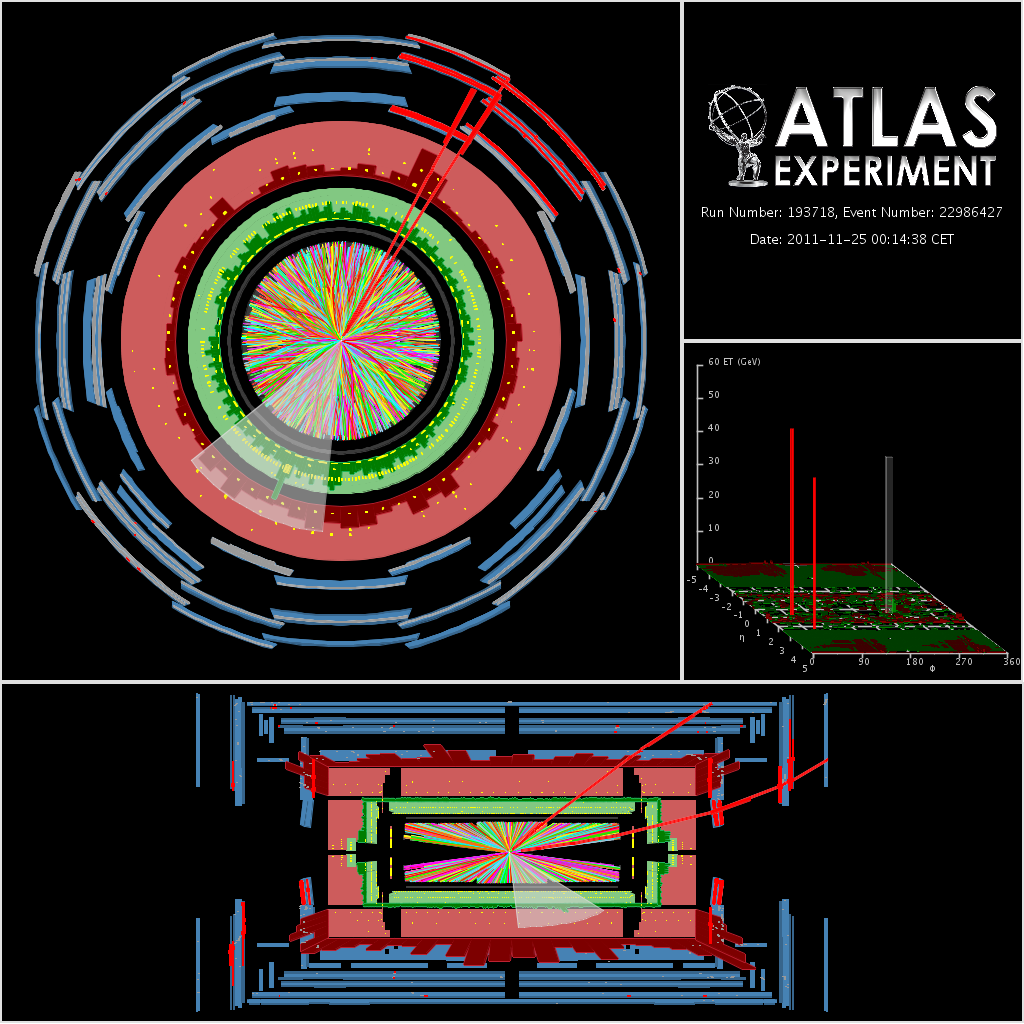ATLAS Heavy Ion Results Presented at QM 2012 in Washington, D.C.
13 August 2012 | By

The Quark Matter conference, which takes place every two years, is this year being organised in Washington, DC, USA on 13-18 August 2012 (QM2012). It will bring together both experimentalists and theorists from all over the world who are studying heavy ion physics at ultra high energies. Heavy ion collisions -- that is, collisions of bare heavy nuclei -- are of great interest to physicists because, if they take place at high enough energies, the constituent parts of their protons and neutrons, the quarks and gluons, may act freely. This state of matter is called quark-gluon plasma and existed in the first few moments after the creation of the universe. Creating quark-gluon plasma in the laboratory will give physicists a unique opportunity to try to understand how the universe behaved few microseconds after its birth.
Heavy ion collisions take place both at the LHC (where there are lead-lead collisions for approximately two months at the end of each year’s proton-proton runs) and at RHIC (Brookhaven’s Relativistic Heavy Ion Collider) in the USA, where gold-gold collisions take place.
From the LHC, the general purpose experiments ATLAS and CMS, as well as the dedicated heavy ion experiment ALICE, presented results at QM2012. ATLAS reported on new findings on jet quenching, including a precise study of how jets fragment in matter, and other exciting results from photon, W, Z and J/Psi production and collective flow.
"We have entered a new phase in which we not only observe the phenomenon of quark-gluon plasma, but where we can also make high-precision measurements using a variety of probes," said Fabiola Gianotti, the ATLAS spokesperson. "There is no doubt that our understanding of the early Universe will be dramatically improved with the studies we are pursuing in this field."



